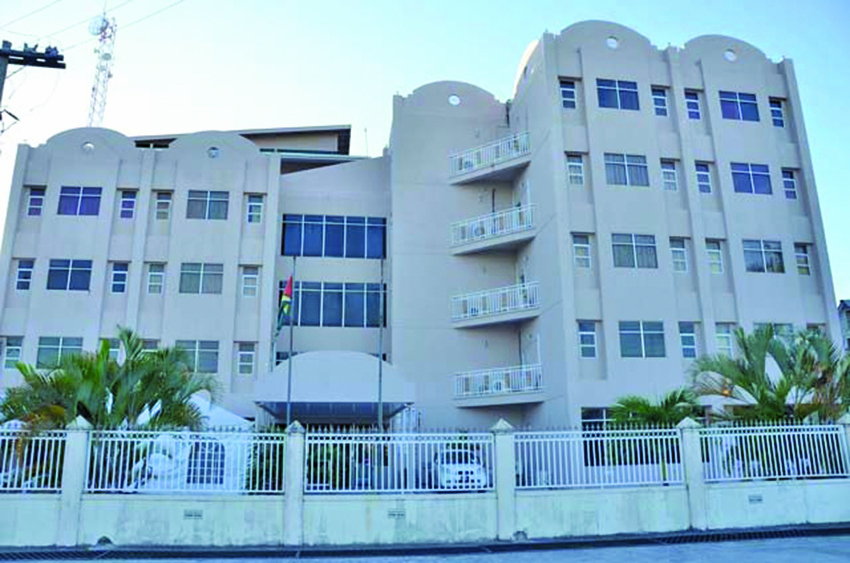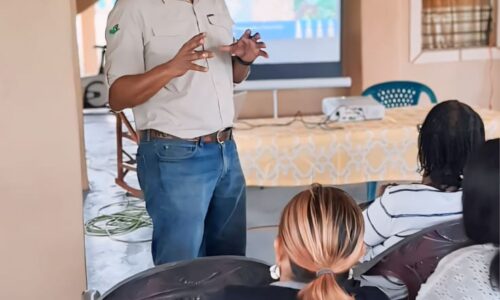GRA beefs up capacity to monitor, audit concessions to Exxon and subcontractors
(KAIETEUR NEWS) Oil companies as well as their affiliated companies and subcontractors benefit from billions of dollars in tax concessions annually. In fact, the operators and their primary subcontractors have in total, a list of over 700 pre-approved equipment and supplies that they can import without hassle.
Considering this magnitude of imports, the Guyana Revenue Authority (GRA) has taken steps to beef up its capacity to monitor and audit the concessions granted. This was done following the advice of the International Monetary Fund (IMF). The financial institution in one of its assessments noted that GRA’s Customs Department possessed a small post verification unit, with a staff of five.
It is responsible for monitoring the use of all concession and exemption privileges. This newspaper understands that this unit falls under the Law Enforcement Division and has since established a Post Clearance Audit (PCA) department.
The Fund explained that the PCA would have a non-intrusive approach for verifying compliance with customs tariff classification, valuation, origin provisions, and will ensure the proper accounting of goods.
It was further noted that this unit previously focused on desk-based and limited scope reviews but its capacity since then has been significantly strengthened, especially in the development of accounting and audit skills, with a view of progressively moving toward off-site and more comprehensive audits.
Going forward, GRA informed this news agency that specialists from the World Customs Organization and other agencies would be providing critical support to the agency in the physical checking of items onshore and offshore so as to verify their use and condition as well as surpluses.
It was further guaranteed that all cases of suspected fraud or smuggling would be fully investigated.
PRE-APPROVED
It was last year January that this newspaper exposed the fact that ExxonMobil and all its affiliates engaged in Petroleum Operations shall be permitted to import, free of duty, VAT or all or any other duties, taxes, levies or imposts, all equipment and supplies required for Petroleum Operations. There is a list of all these items that can be imported by ExxonMobil in Annex D of the contract governing the Stabroek Block.
The items include but are not limited to drill ships, platforms, vessels, geophysical tools, communications equipment, explosives, radioactive sources, vehicles, oilfield supplies, lubricants, consumable items.
The privilege has also been granted to UK operator, Tullow Oil for the Orinduik Block. According to the contract signed with the Granger administration in January 2016, Tullow, Eco Atlantic, Total and all their sub-contractors, non-resident or otherwise, shall be permitted to import all equipment and supplies free of duty, Value Added Tax (VAT) or all or any other duties, taxes, levies or imposts.
It also has a pre-approved list of over 330 items which is with the authorities.
In addition to this, the companies are free to export these items as they deem fit without any tax or fee being applied. Joining them on this tax free ride are all the expatriate employees of the oil companies and their sub-contractors. The expats of affiliated companies and their subcontractors will benefit too. They all shall be able to import into Guyana free of duty and taxes. They will also enjoy the right to export from Guyana, free of all duties and taxes and at any time.
Taking the aforementioned into account, Local Content Expert, Anthony Paul, has said that such exemptions for foreign subcontractors can only be viewed as discriminatory to locals and should be addressed whether by law or the review of contracts.
Paul emphatically outlined same in a report he wrote on the request of the United Nations Development Programme (UNDP).
That international organization had commissioned this report for the Government and it was handed over in 2016. In that document, Paul stressed that such exemptions could actually undermine Guyana’s local content efforts.
The Local Content Expert recommended that the concessions which are granted to the oil sector, be reviewed to ensure that Guyana is not giving away more than it should. Paul suggested that a special Negotiating Task Force be established to handle that particular issue.
The Chatham House Advisor also cautioned that oil companies often engage local accounting firms to help them find the country’s fiscal loopholes. He said that to safeguard itself, Guyana would be wise to consider doing same, that is to say, hiring the right firms to help identify and plug the foregoing loopholes, among others, which can be used to keep significant revenue away from the national purse.





